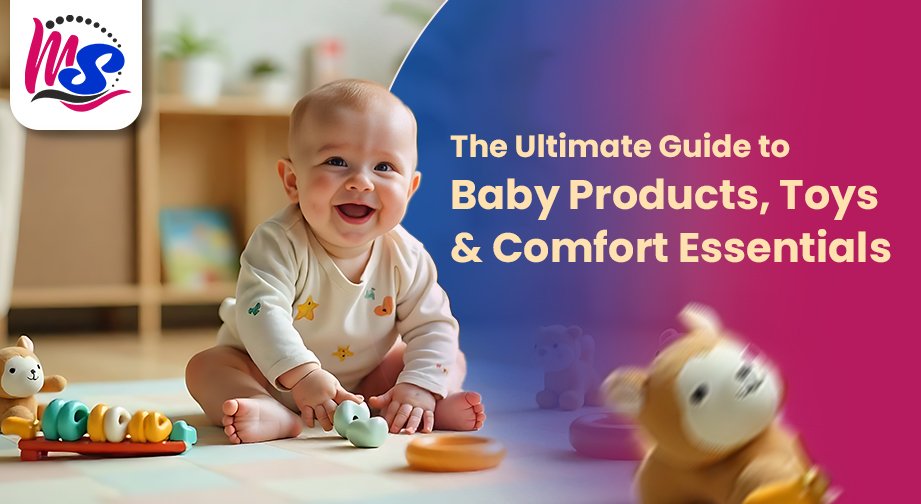🌴 ❄️ Winter is Back: The Perfect Time to Hire Help in the UAE
Winter [...]
Oct 09, 2025
Ensuring the safety and health of children is a top priority in any childcare setting. One of the most critical aspects of this responsibility is food safety. Proper handling, preparation, and storage of food can prevent foodborne illnesses and ensure that children receive nutritious meals that contribute to their growth and development. Maidsearch.ae special blog outlines essential food safety guidelines that every childcare provider should follow to maintain a safe and healthy environment.
1. Personal Hygiene
Maintaining personal hygiene is the first line of defense against foodborne illnesses. Childcare providers should:
Handwashing: Wash hands thoroughly with soap and water before handling food, after using the restroom, changing diapers, or touching pets. Handwashing should last at least 20 seconds, ensuring all parts of the hands, including between fingers and under nails, are cleaned.
Proper Attire: Wear clean clothing and aprons when preparing food. Hair should be tied back or covered with a hairnet to prevent contamination.
Glove Use: Use disposable gloves when handling ready-to-eat foods and change them frequently to avoid cross-contamination.
2. Safe Food Handling and Preparation
Proper food handling and preparation are crucial to preventing foodborne illnesses. Key practices include:
Avoid Cross-Contamination: Use separate cutting boards and utensils for raw and cooked foods. Ensure that raw meats are kept separate from fruits, vegetables, and ready-to-eat items.
Cooking Temperatures: Cook foods to the appropriate internal temperatures to kill harmful bacteria. For example, cook poultry to at least 165°F (74°C) and ground meats to 160°F (71°C). Use a food thermometer to check temperatures.
Thawing Food Safely: Thaw frozen food in the refrigerator, under cold running water, or in the microwave, not at room temperature.
Proper Cooling: Cool cooked foods quickly by dividing them into smaller portions and placing them in shallow containers before refrigerating. This prevents the growth of bacteria.
3. Safe Food Storage
Proper food storage helps maintain the freshness and safety of food:
Temperature Control: Keep perishable foods refrigerated at or below 40°F (4°C). Store dry goods in a cool, dry place, and keep them tightly sealed to prevent contamination from pests.
Labeling and Dating: Clearly label and date all stored foods. This practice helps in identifying expired items and ensures that the oldest items are used first.
Regular Inventory Checks: Regularly check the inventory for expired or spoiled foods. Discard anything that shows signs of spoilage, such as mold, off smells, or discoloration.
4. Special Considerations for Allergies
Food allergies are a significant concern in childcare settings. To keep all children safe:
Identify Allergies: Obtain a list of any food allergies from parents and caregivers. Post this list in the kitchen and food preparation areas.
Prevent Cross-Contact: Ensure that allergenic foods are prepared and served separately to avoid cross-contact. Use dedicated utensils and equipment for allergen-free foods.
Educate Staff: Train all staff on recognizing the signs of an allergic reaction and the steps to take in an emergency, including the use of epinephrine auto-injectors if necessary.
5. Cleanliness and Sanitation
Maintaining a clean environment is essential for food safety:
Clean Surfaces Regularly: Clean and sanitize all food preparation surfaces, utensils, and equipment before and after use. Use a solution of bleach and water or other approved sanitizers.
Pest Control: Implement pest control measures to prevent infestations that could contaminate food.
Proper Waste Disposal: Dispose of food waste promptly and keep trash bins covered to prevent attracting pests.
Conclusion
We maidsearch advise all childcare providers to take utmost care & follow above guidelines. By following these food safety guidelines, childcare providers can create a safe and healthy environment where children can enjoy nutritious meals without the risk of foodborne illnesses. Implementing these practices not only ensures compliance with health regulations but also provides peace of mind for both providers and parents, knowing that the children in their care are protected.

🌴 ❄️ Winter is Back: The Perfect Time to Hire Help in the UAE
Winter [...]
Oct 09, 2025
The Future of Work in 2025 and Beyond: What It Means for Domestic Workers in the UAE
The future of [...]
Sep 12, 2025
Kids Fashion Trends in the UAE Stylish Comfortable & Sustainable
The world [...]
Aug 06, 2025
Small Lungs, Big Future: Protecting UAE Kids from Smoke
The sun shines [...]
Jul 14, 2025
The Ultimate Guide to Baby Products - Toys & Comfort Essentials
Welcoming a new [...]
Jun 26, 2025
Eco-Friendly UAE: Everyday Habits for a Sustainable Future
The UAE is a [...]
Jun 11, 2025
10 Things Your Maid Wishes You Knew (But Won’t Tell You)
Behind every [...]
May 20, 2025
5 Signs It’s Time to Hire a Good Domestic Helper
Managing a [...]
May 03, 2025
Summer in the UAE: Essential Precautions for Childcare & Babysitting
As temperatures [...]
Apr 18, 2025
How to Create a Positive Work Environment for Your Domestic Helper
Hiring a [...]
Mar 20, 2025